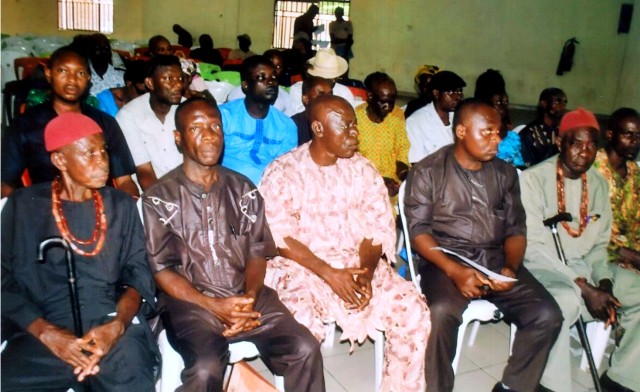Business
Ebonyi Seeks US Assistance To Develop Agric

Ebonyi State Governor, David Umahi has appealed to the U.S. Government to assist the state in effectively developing its agriculture and solid minerals sectors.
Umahi made the appeal in Abakaliki when he received the U.S. Ambassador to Nigeria, Mr Stuart Symminton, in Abakaliki.
He said Ebonyi had huge agricultural potential and mineral resources, such as limestone, salt and lead, which had yet to be developed.
“We are reputed for rice production in the whole of West Africa and our salt and limestone deposits are among the best in the world.
“We seek U. S. assistance in the area of technological enhancement to effectively develop these sectors as we are using our three technical colleges to develop indigenous technology,” the governor said.
He thanked the U.S. Government for its various interventions in Nigeria, some of which had benefitted Ebonyi.
“We solicit your cooperation to attract investment in the state as we have provided the enabling environment for economic investments to thrive.
“Security provision in the state is one of the best in the country as we have massively invested in infrastructure development to attract investment opportunities.
“Our allocation from the Federation Account is meagre and this made us insist on quality in our constructions, such as roads due to our soil texture.
“We placed this emphasis on infrastructure development to solve our under-development challenges occasioned by several years of abject neglect from states we hitherto belonged, “ he said.
Symminton said he was in the state to deepen the relationship between the U.S. and Ebonyi.
“We are determined to ensure a more robust relationship built on trust and which would assist the state in the development of its economic and social sectors,” he said.
He commended the governor for his achievements in agriculture, infrastructure and the social sector and promised the U.S. would assist the state in realising its development objectives.
“We would ensure effective integration of your economic potential and enhance opportunities to attract massive economic investment in the state,” he said.
Business
Agency Gives Insight Into Its Inspection, Monitoring Operations

Business
BVN Enrolments Rise 6% To 67.8m In 2025 — NIBSS

The Nigeria Inter-Bank Settlement System (NIBSS) has said that Bank Verification Number (BVN) enrolments rose by 6.8 per cent year-on-year to 67.8 million as at December 2025, up from 63.5 million recorded in the corresponding period of 2024.
In a statement published on its website, NIBSS attributed the growth to stronger policy enforcement by the Central Bank of Nigeria (CBN) and the expansion of diaspora enrolment initiatives.
NIBSS noted that the expansion reinforces the BVN system’s central role in Nigeria’s financial inclusion drive and digital identity framework.
Another major driver, the statement said, was the rollout of the Non-Resident Bank Verification Number (NRBVN) initiative, which allows Nigerians in the diaspora to obtain a BVN remotely without physical presence in the country.
A five-year analysis by NIBSS showed consistent growth in BVN enrolments, rising from 51.9 million in 2021 to 56.0 million in 2022, 60.1 million in 2023, 63.5 million in 2024 and 67.8 million by December 2025. The steady increase reflects stronger compliance with biometric identity requirements and improved coverage of the national banking identity system.
However, NIBSS noted that BVN enrolments still lag the total number of active bank accounts, which exceeded 320 million as of March 2025.
The gap, it explained, is largely due to multiple bank accounts linked to single BVNs, as well as customers yet to complete enrolment, despite the progress recorded.

